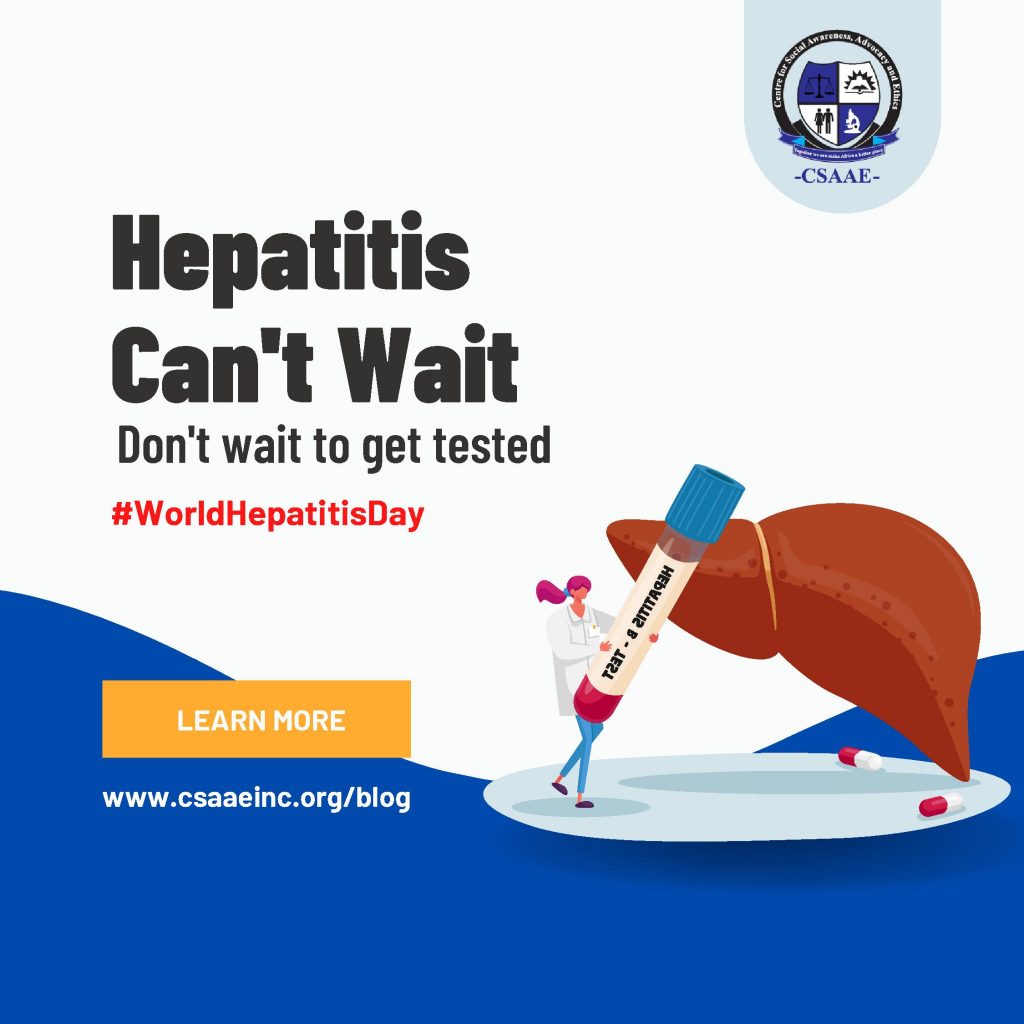People living with viral hepatitis are often unaware they have it. They don’t know how to protect themselves, let alone others. They can’t work because of the symptoms. And even though there are effective treatments, people are still denied access to lifesaving medicines.
The WHO estimates that there are approximately 240 million chronic carriers of hepatitis B virus (HBV), which causes liver disease. More than 350,000 deaths occur each year due to complications arising from HBV infection. In addition, more than 1 million people die annually as a result of HCV-related cirrhosis and hepatocellular carcinoma. The global burden of viral hepatitis is enormous.
About Hepatitis
Hepatitis A is caused by the hepatitis A virus (HAV). It is spread through contaminated food or water. Symptoms include fever, fatigue, nausea, vomiting, abdominal pain, dark urine, jaundice, and diarrhea. Most cases resolve within 2 months without treatment. However, in some cases, it can lead to acute liver failure and death. About 20% of those infected with HAV develop chronic infections, which may be lifelong. There is no vaccine for this disease.
Hepatitis E is caused by the hepatitis E virus (HEV) and is transmitted via the fecal-oral route. It has been reported in all continents except Antarctica. HEV is an emerging pathogen in developed countries. The clinical manifestations range from subclinical illness to severe hepatitis with high mortality rates. No specific antiviral therapy exists for hepatitis E.
Hepatitis C is caused by the hepatitis C virus (HCV). It is estimated that 170 million people worldwide have been exposed to HCV. Approximately 3–4 million people become chronically infected, resulting in about 700 000 new cases per year. Chronic HCV infection leads to progressive liver damage, including scarring, fibrosis, and ultimately cirrhosis and cancer. The risk of developing these serious health problems increases with time after exposure. The only way to prevent HCV transmission is to avoid parenteral exposures to blood or body fluids containing HCV. This includes avoiding injections, using sterile needles and syringes, not sharing razors or toothbrushes, and treating medical equipment properly.
Hepatitis D virus is a defective RNA virus dependent on hepatitis B surface antigen (HBsAg) for its replication. It was discovered in 1989 when it was found to coexist with hepatitis B virus (HBVs) in patients who were coinfected with both viruses. HDV is responsible for most posttransfusion hepatitis cases. It is also associated with fulminant hepatitis, particularly among children. There is currently no effective treatment available for hepatitis D.
Hepatitis B is known as one of the deadliest variations of viral hepatitis infection. It is caused by the hepatitis B virus (HBsAg). It is estimated that over 400 million people worldwide have been infected with HBV. Of them, 350 million are chronic carriers of the virus. These individuals are at increased risk of developing cirrhosis, liver cancer, and other diseases related to long-term infection. Worldwide, approximately 600,000 people die every year because of complications arising from chronic hepatitis B.
The World Health Organization (WHO) recommends vaccination against hepatitis B for all infants born in areas where the prevalence of HBV infection exceeds 8%. Vaccination should begin at birth and be completed before 6 months of age. Universal vaccination programs have resulted in a significant reduction in the incidence of chronic hepatitis B. In addition, there has been a decrease in the number of deaths due to fulminant hepatic failure as a result of HBV infection.

World Hepatitis Day — July 28th
On July 28th each year, we celebrate World Hepatitis Day, the birthday of Dr., a scientist whose discoveries led to the development of the first hepatitis B vaccine and helped save countless lives.
This year, World Hepatitis Day focuses on the global burden of viral hepatitis. Viral hepatitis affects approximately 350 million people globally and kills around 500,000 every year. This includes both acute cases of hepatitis A, B, C, D, E, and G, and chronic liver diseases such as cirrhosis and cancer caused by hepatitis B and C.
In order to reduce the impact of viral hepatitis, WHO works closely with governments, international organizations, civil society groups, and the private sector to support their efforts to combat this disease.
Ways to commemorate world hepatitis day
• Share your stories on social media using #worldhepatitisday
• Use the hashtag #worldhepatitisweek to share information about the global burden of viral infections
• Watch videos produced by the World Hepatitis Alliance
• Learn more about viral hepatitis.
. Organize hepatitis awareness outreach in your community
. Get tested for hepatitis
This World Hepatitis Day, we’re calling on governments around the world to invest in public health systems and help us to end hepatitis stigma and discrimination. We want everyone to live free from the fear of being infected with hepatitis B and C.
We want people living with hepatitis to receive timely diagnosis and treatment. And we want pregnant women and newborn babies to be vaccinated against hepatitis B and C. These simple steps could save lives.


